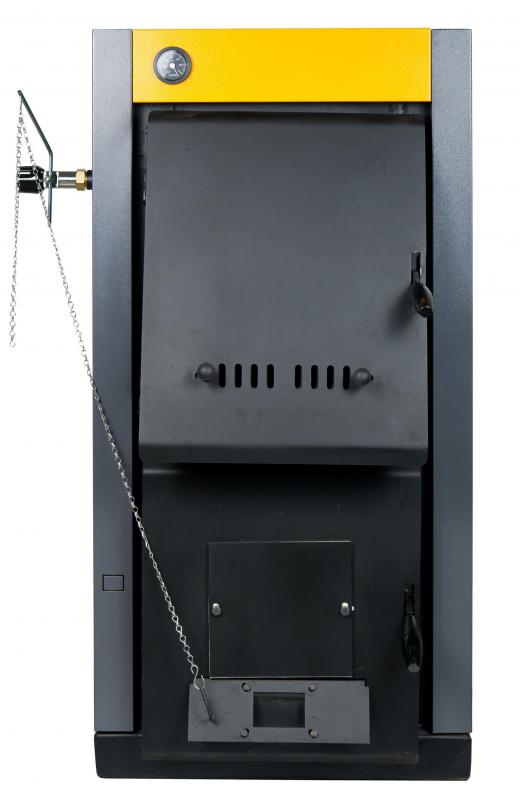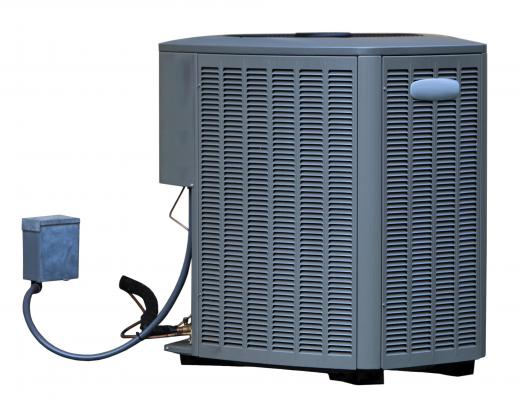Hybrid heat is a dual fuel system used to heat a building, most typically a home. Like hybrid vehicles that switch between gas and electric power, hybrid heat utilizes two energy sources to optimize energy efficiency. A hybrid heat system automatically switches between energy sources depending on environmental conditions at a given time. In cool weather, it typically uses an electric heat pump, generally switching to a furnace when the weather is extremely cold.
The two main components of a hybrid heat system are typically an electric heat pump and a gas or oil furnace. Many existing heating systems use one of these items and can be retrofitted with equipment to transform them into hybrid systems. For example, a common setup is a split system with an indoor gas furnace coupled with an outdoor air conditioning condenser unit. By replacing the air conditioning condenser with a heat pump, the system can be upgraded to hybrid heat technology.

Heat pumps transfer outdoor heat from the air or the ground to an indoor space by way of a refrigerant circulating through a heat exchanger. Even chilly winter air can be a source of heat that can be extracted and transferred indoors. This works similarly to a refrigerator removing heat from its cold interior and transferring it back into the kitchen. The energy required by this process is only what it takes to extract heat from the outdoor air and pump it into the indoor environment. Heat taken from the outside environment is otherwise free because it does not need to be produced by burning fuel.

Furnaces provide intense bursts of heat to the indoor space. They typically produce heat by burning non-renewable fossil fuels such as gas or oil. A furnace requires energy not only to distribute heat in the building, but also uses additional fuel to produce the heat in the first place.
In mild weather, a heat pump will typically heat a space more efficiently because it can transfer free heat from outdoors to indoors fairly easily. Relatively little energy is required in such cases to extract heat from the air and bring it indoors. When outdoor temperatures drop, however, more and more energy is required since there is less heat in colder air and it is harder to extract. Heat pumps must work harder as it gets colder and are typically not able to keep up with heating demands in extreme cold weather. A furnace is generally the more efficient heat source when the outdoor temperature drops to roughly freezing.
Hybrid systems automatically switch energy sources as outdoor conditions change, which allows them to use the most efficient source at any given time. The initial cost of equipment for hybrid heat is generally a bit more expensive than for traditional systems. Use of this technology, however, can result in substantial utility bill savings for the building owner. Equipment costs for a hybrid heat system are usually recovered quickly in regions where heat is required for 6 months or more each year. Initial expenses may also be partially offset in some areas by tax incentives offered for environmentally efficient equipment upgrades.
